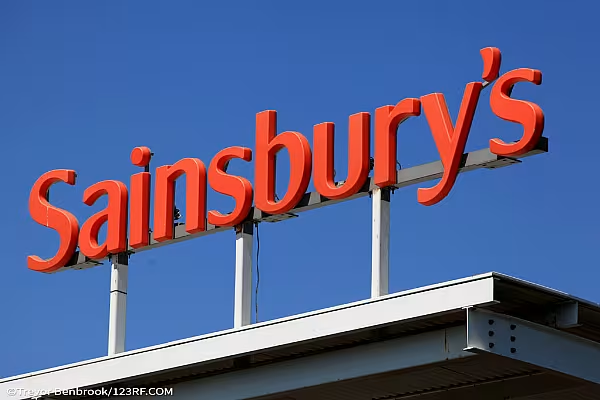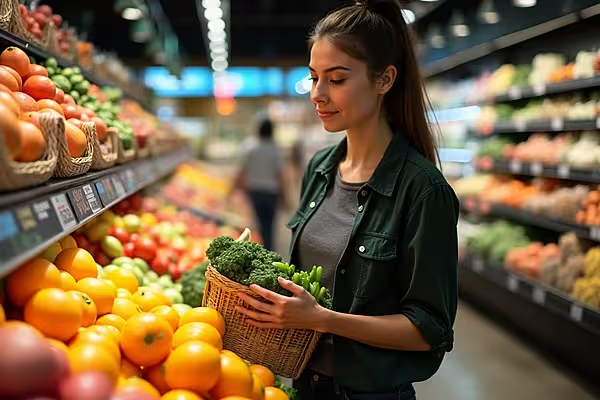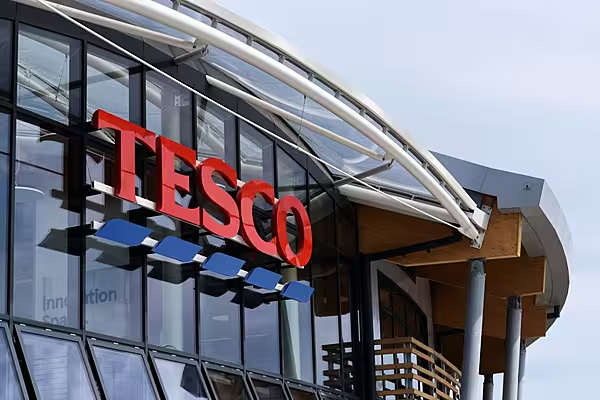Sainsbury's has reported a 5.3% decline in third quarter sales, compared to the previous year, while sales over the busy Christmas period were down 2.9%. Like-for-like sales were down 4.5%, excluding fuel.
Commenting on the group's performance, chief executive Simon Roberts said, “The backdrop was challenging and our teams worked hard throughout the year to make sure we had all of the products everyone wanted."
Here's how leading retail analysts viewed its performance.
Russ Mould, AJ Bell
“Sainsbury’s is now a year into its ‘food first’ strategy and the shift in focus is evident in its latest trading update where grocery sales are good and general merchandise is left behind.
“The company blames tough year-on-year comparatives for weaker non-food sales, yet given that quite a few other retailers have reported a decent Christmas, one wonders if Sainsbury’s-owned Argos has made a few mistakes and more attention is needed to the brand.
“For years Sainsbury’s has been stuck in the middle. Its products have more expensive than Aldi, Lidl, Tesco and Asda and so the value shopper hasn’t seen Sainsbury’s as a desirable place to buy food and drink. Equally, people seeking a higher quality product have preferred to go to Waitrose or Marks & Spencer.
“The new strategy is to become more competitive on pricing is now winning over some of the value-seeking shoppers, while a big focus on product innovation has seen it roll out some higher quality items which look to have been a hit with people looking for something fancy to put in their basket.
“Sainsbury’s needs to sustain momentum with this trend, which will not be an easy job given how all the other supermarkets are constantly tinkering with their formula to try and stay one step ahead of the competition.”
Clive Black, Shore Capital
"Sainsbury's, the No.2 grocer by share in the UK amongst other things, has reported a very good, surprisingly positive to us, trading statement for the 16 weeks (16W) to the 8 January 2022. We point out that unlike Asda and Tesco but in-line with Marks & Spencer and Morrisons, the business closed its stores on Boxing Day 2021, so one day less of festive period trading, to give its hard pressed workers a well-earned rest (such commitment and public service maybe something that rail and teaching unions may like to note).
"In terms of the key operational features of Q3 FY22, which embraces the important festive trading period [...] Sainsbury's grocery business has performed robustly, benefiting from demonstrably stronger value traits, whilst Argos has faced into an operational minefield in the period.
"We will think about FY23 in light of this Q3 update, the profit base is clearly higher although it may be sensible to be suitably cautious at this stage given observable headwinds around consumer expenditure, cost inflation and comparatives."
Richard Lim, Retail Economics
"These are very encouraging figures, portraying a defiant consumer who prioritised Christmas get-togethers despite rising anxieties about the virus. Food sales held up well against the previous year (given the restrictions 2020) as more family gatherings took place and consumers indulged across premium lines.
“To ensure a COVID-free Christmas, many people limited their social interactions in the run-up the big day, boosting home-cooked meals to the detriment of the hospitality sector. This displacement of spending from bars, restaurants and pubs supported food sales over the period.
“The retailer was also much better placed to cope with the surge in online grocery sales having invested heavily to boost capacity and improve efficiency over the last couple of years. A wave of new online grocery shoppers helped almost double sales on 2019 levels.”
Ross Hindle, Third Bridge
"The UK supermarket landscape is attractive to private equity investors and should remain so during the whole of 2022. However, unlike Morrisons, Sainsbury’s remains a complex target. The group is not vertically integrated, does not boast an impressive property portfolio, and is currently faced with some market share risk from both the discount and rapid-delivery sector of the market.
"Food inflation is expected to continue to outpace cost inflation and could ultimately result in higher operating margins for the industry as a whole. However pricing and market share remains a balancing act, with Sainsbury's contending with not just cost pressures but a highly competitive jobs market and pressure from the rapid-delivery players.
"December’s trading was particularly strong for UK supermarkets, with home working translating into home eating and fewer consumers dining out as Omicron swept the country.
"There is now plenty of evidence to suggest the UK’s grocery renaissance is here to stay. Sainsbury’s should be able to hold on to its gains thanks to its loyal customer base and innovation around product lines, however it would be remiss not to highlight the threat the discounters and rapid-delivery grocers pose, particularly to Sainsbury's."
Zoe Mills, GlobalData
“Despite this somewhat lacklustre Q3 performance, Sainsbury’s will not be too disheartened given the backdrop of these results, namely that they are against a strong comparative period significantly impacted by the ongoing COVID-19 pandemic. Its grocery division held up best with a minor decline of 1.1% year-on-year and is up 6.6% on a two-year basis.
"This highlights that its Food First strategy continues to be the right move in rejuvenating its food proposition in light of the competition in the value segment of this sector. Indeed, with grocery sales up 0.1% for the six weeks to 8 January 2022, its performance only just falls short of Aldi, which reported its UK sales were up 0.4% for the December 2021 period, supported by its own Aldi price matching scheme and My Nectar Prices initiative.
"Structural cost savings and higher grocery volumes have resulted in a forecast rise in expected full-year profits to at least £720m. However, if Sainsbury’s does achieve this lower end of guidance, underlying pre-tax profits would still be down £10m on FY2020/21.
"While Sainsbury’s focus in its food proposition during the pandemic has been apt as consumers face rising prices elsewhere (such as in their energy bills), more attention must be given to its non-food proposition this year."
© 2022 European Supermarket Magazine. Article by Stephen Wynne-Jones. For more Retail news, click here. Click subscribe to sign up to ESM: European Supermarket Magazine.













